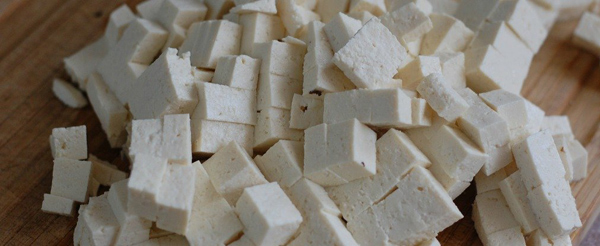
For people living in some remote villages in Indonesia, heating houses and fuelling stoves can be a real challenge. The resources required, like gas and wood, have to get shipped in and distributed to individual households, and not only does this process take a whole lot of time - some families wait weeks for new gas to arrive - it also produces a tonne of emissions that contribute to global warming.
在印度尼西亚的一些偏远小村庄中,房屋取暖和锅炉燃料是个大问题。像天然气、木头之类的资源需要从外面运输进来,然后再分配到每个家庭。这个过程很漫长,许多家庭要等好几周,而且这些燃料会产生大量的二氧化碳,加剧全球变暖。
The good news is that this antiquated system is now on its way out, thanks to an unlikely source: tofu.
好消息是,这种陈旧的方式将被取代,这多亏了一种不同寻常的来源:豆腐。
You're probably familiar with tofu as a delicious, fluffy treat that's made from bean curd, but in Indonesia, tofu isn't just a snack - it's a livelihood, with hundreds of small, family-run shops producing tofu in massive quantities every day.
大家都知道豆腐软乎乎的很美味。但是在印尼,豆腐不只是一种食物,更是一种营生,成千上万的家庭式小作坊每天要生产大量的豆腐。
Now, thanks to a government-run program, the waste water from all that tofu production is getting transformed into biogas that can be pumped directly to houses.
如今,当地政府主导了一项工程:将所有做豆腐剩下的水用来生产沼气,然后供应给各家各户。
But how does it work?
但是这个系统是如何运转的呢?
First, let's talk about tofu. Tofu has been made the same way for generations, and it's a rather simple, yet time-consuming process.
首先是生产豆腐。多少年来,豆腐都是相同的做法,过程简单但是耗时。
Basically, producers start by soaking and grinding soybeans to separate the soy milk from the soy pulp. This step takes the longest because the beans have to soak for hours before they are ready for separation.
简单来说,就是要浸泡然后研磨大豆,把豆浆和豆渣分离。这个步骤耗时最长,因为需要将大豆浸泡数小时,才能实现分离。
After the separated parts go through a filtration system, the protein and oil are separated from the soy milk. A chemical coagulant is added to firm everything up. once formed, you have tofu ready for cutting. So, in essence, tofu is coagulated soy milk that you can pick up and eat.
分离出来的豆浆经过过滤,蛋白质和油脂就从豆浆中分离出来,然后在豆浆中加入混凝剂就形成豆腐了。当豆腐成形时,就可以切成块了。本质上,豆腐就是一种让你可以用手拿起来吃的固态的豆浆。
Though simple in practice, an enormous amount of water is required to make tofu - roughly 33 litres for every kilogram of spongy bean curd.
尽管操作过程简单,但是制作过程中需要大量的水,大概每公斤豆腐需要使用33升水。
Researchers found that this waste water could be turned into biogas if a certain type of bacteria is added to it.
研究人员发现,如果在这些废水中加入某种细菌就可以将废水转化为沼气。
Every day, the waste water is collected from various shops and treated with bacteria. once transformed, the gas is pumped directly to local homes.
每天从各个作坊收集的废水被集中到一起,然后在里面加入细菌,随后就能产生沼气,即时供应给当地住户。
Besides creating a green energy source for locals, using all that waste water has significantly helped the local environment. Thousands of litres of waste water drained from raw tofu was once pumped daily from factories around the village into nearby rivers, befouling waterways and contaminating rice fields downstream.
这个方法不仅为当地提供了绿色能源,而且合理地处理废水对当地环境也是很好的保护。在此之前,每天制造生豆腐产生的成千上万升废水从村中各处的作坊排放到附近的河流中,污染了河流和下游的稻田。
Without all that wastewater lying around, farmers have seen an increased rice yield and the foul smell that comes with tofu production has left the area.
没有了废水的污染,水稻产量上升了,难闻的气味也没有了。
The hope for Kalisari is to become the first full-blown green village in Indonesia. If they're successful, there's no reason why similar programs couldn’t sweep across the region, dramatically changing the way people get the energy they need to live out their lives.
Kalisari有望成为第一个完全使用绿色能源的村庄。如果真能做到这一点,那么这个项目就能顺理成章地推广到其他地区,极大地改变当地的能源使用方式。







